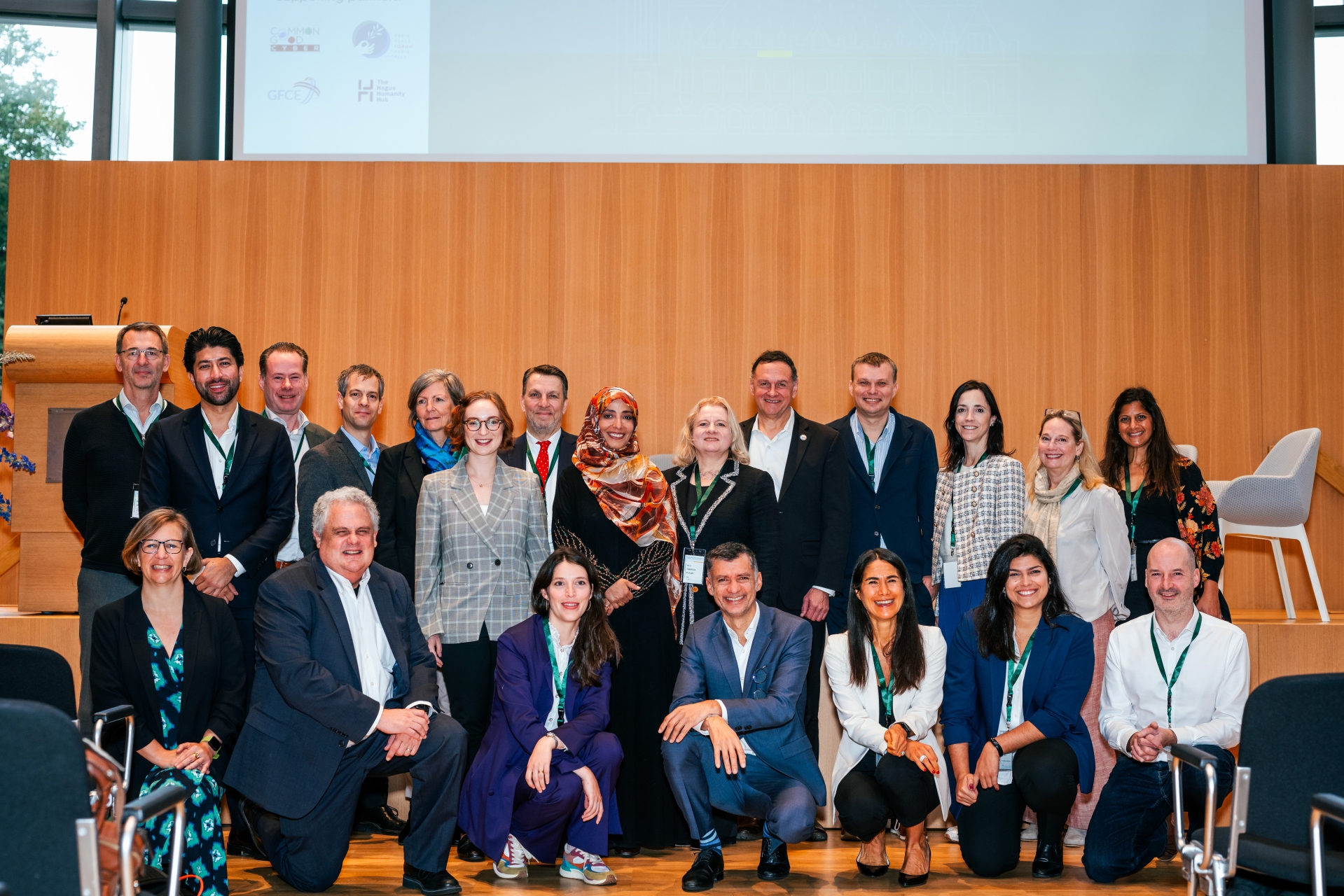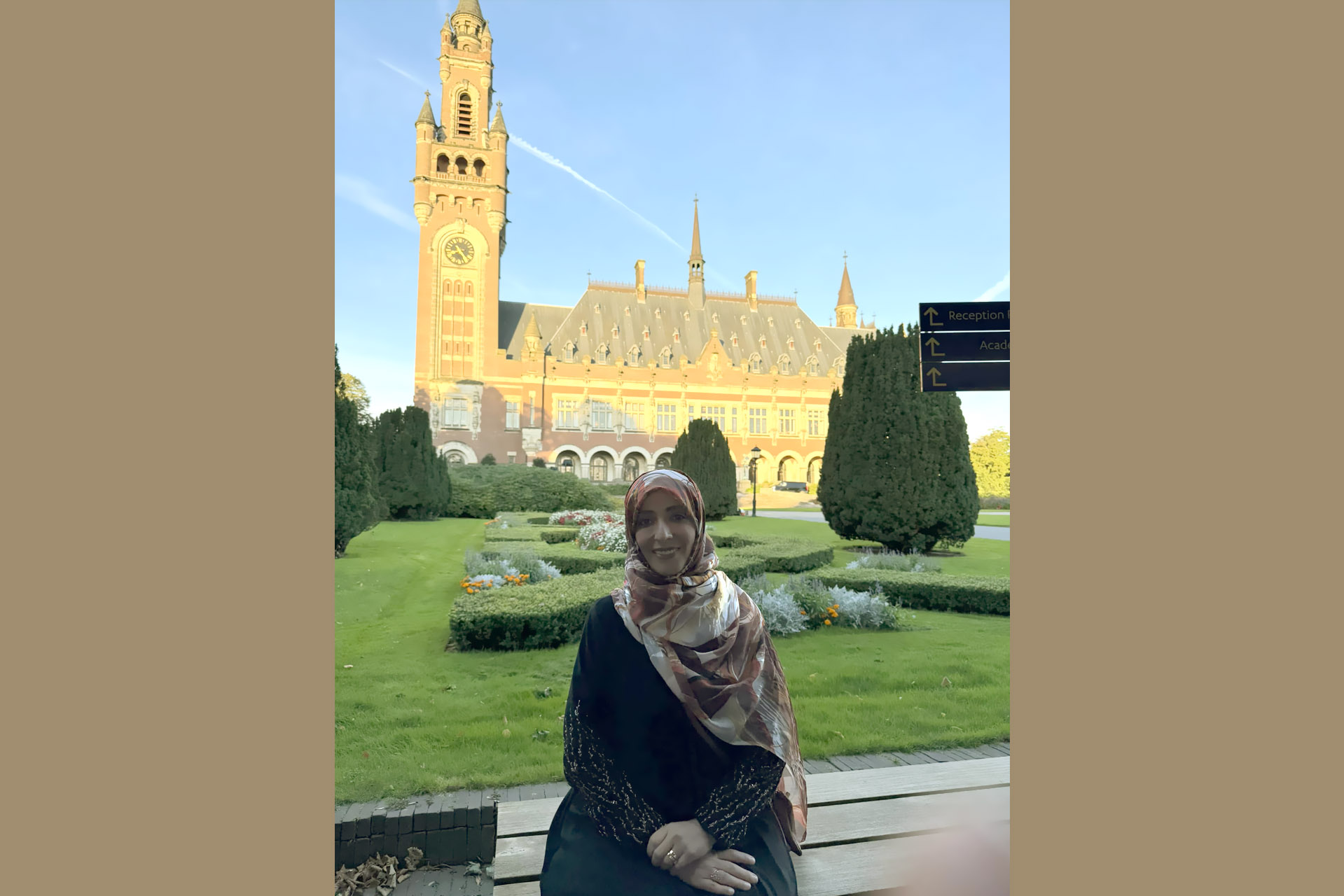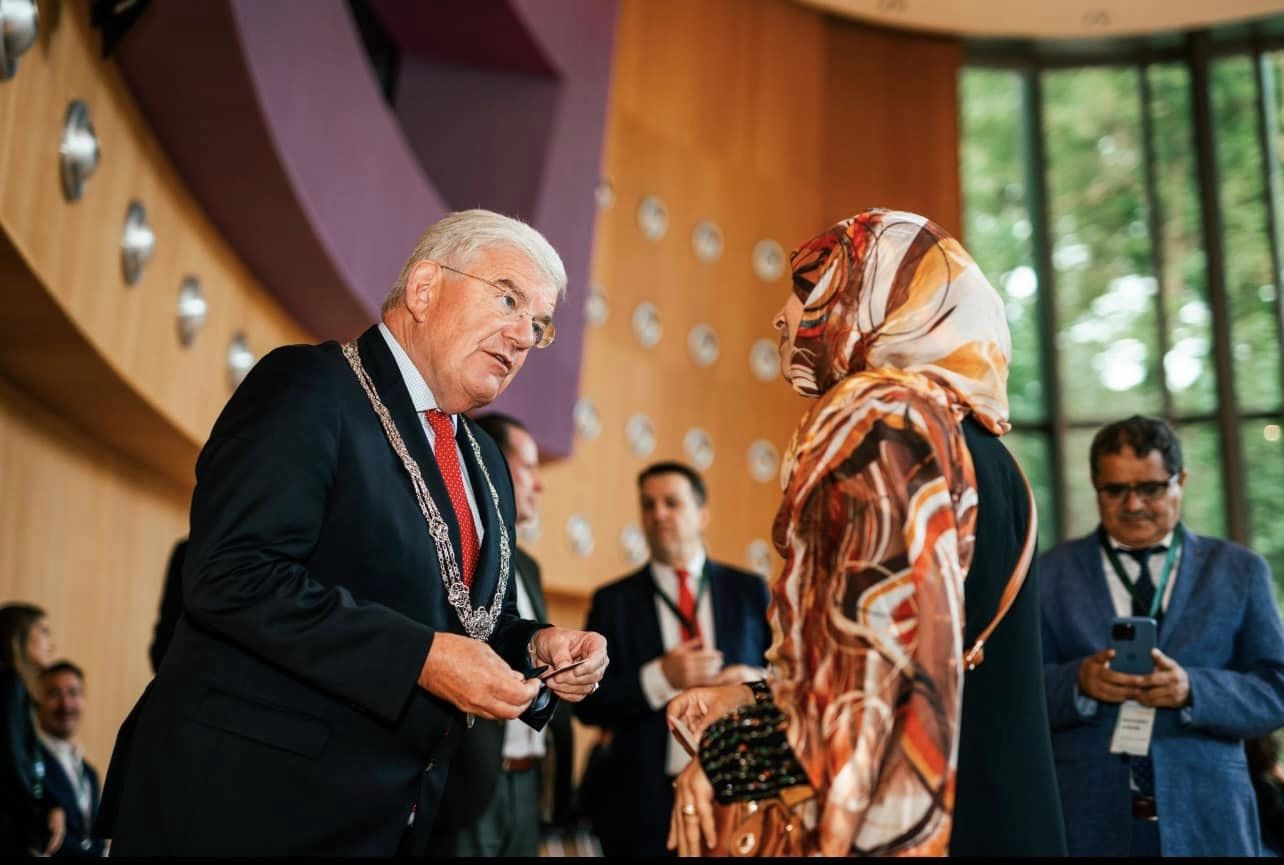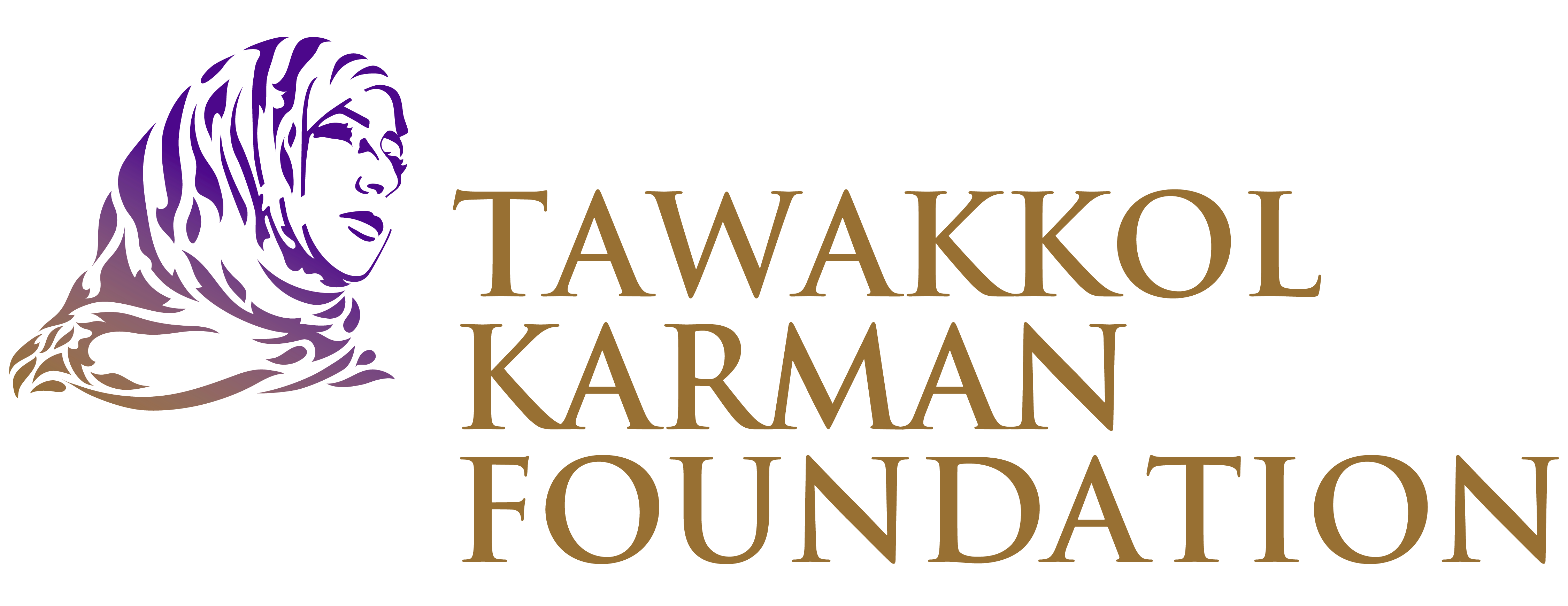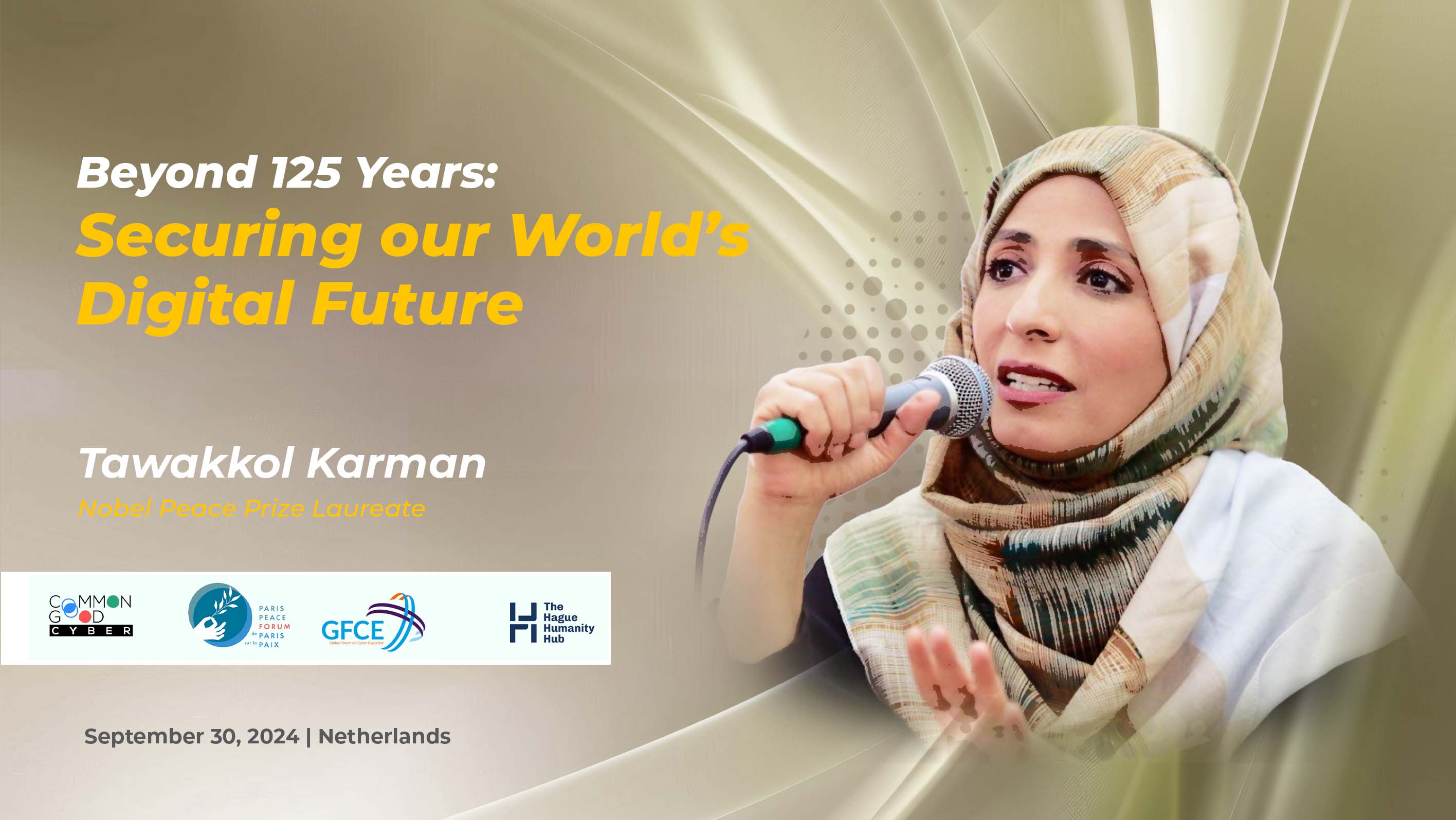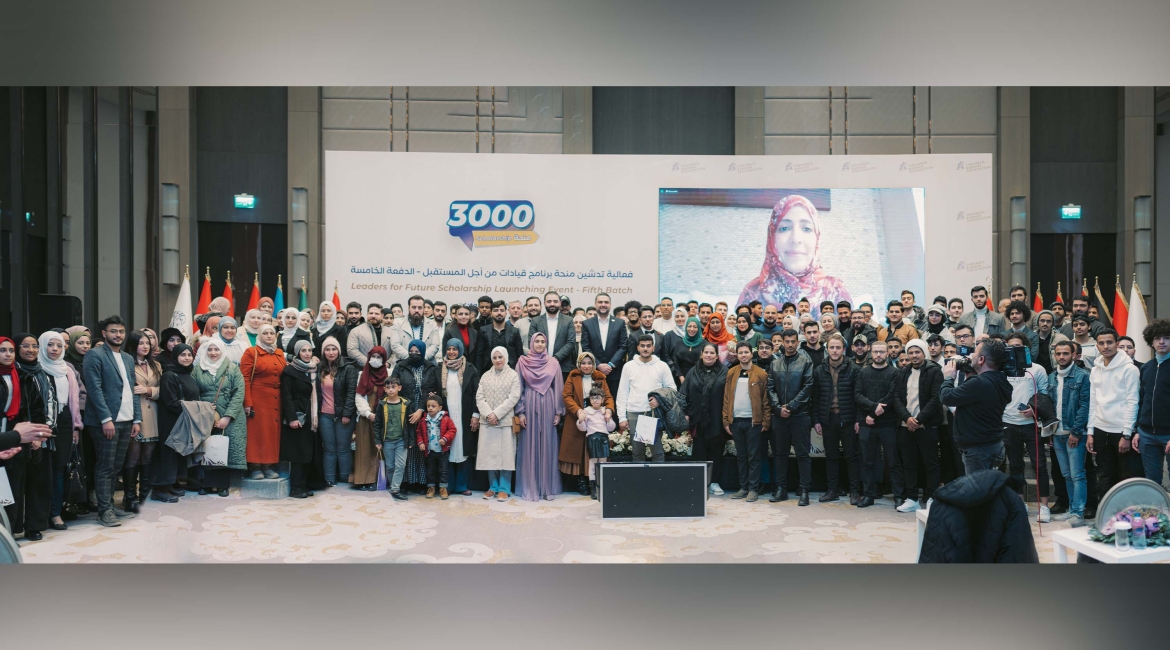Tawakkol Karman delivered a powerful address at a global gathering titled "Beyond 125: Securing the Future of Our Digital World," held at the Peace Palace in The Hague.
She expressed her honor of being in a city renowned for its commitment to international justice, which is home to both the International Court of Justice and the International Criminal Court. Karman conveyed her gratitude to the organizers for inviting her to participate in such a significant conference.
During her speech, Karman reflected on the theme of the conference, highlighting the importance of considering the achievements made in the 125 years since the establishment of the relevant convention. She initiated a critical inquiry, asking what humanity had accomplished since adopting this pivotal agreement aimed at mitigating the impacts of armed conflict and protecting civilians.
Karman emphasized that the convention was designed to ensure the humane treatment of prisoners of war and to prevent the use of weapons capable of mass destruction. She noted that it also aims to resolve disputes peacefully and encourages dialogue and arbitration as means to settle conflicts. Karman underscored that this convention carries a vital message regarding international law and the principles it upholds.
As she posed her reflective questions, Karman pointed out that the past 125 years had seen numerous conflicts, including the First and Second World Wars, the Korean War, the Vietnam War, the Gulf War, the Iraq War, the Israeli-Palestinian conflict, and the ongoing situation in Ukraine. She lamented that despite the efforts initiated by the Great Hate Prevention Convention, these wars continued to plague humanity.
Karman raised a critical concern about whether the convention had effectively contributed to peace and the protection of human rights. She expressed sorrow over the evident deterioration of human rights and international relations in the 21st century. Additionally, she highlighted the rise of dictatorships that threaten global stability, pointing to significant suffering in her home country of Yemen as a result of the conflict fueled by Saudi Arabia, the UAE and Iran.
She reaffirmed the importance of the human rights commission, describing it as one of the most significant achievements in history, urging that its values and principles must not be betrayed. Karman asserted that these conventions represented a substantial victory for humanity, particularly regarding international human rights.
However, she argued that the primary issue did not reside within the conventions themselves, but rather in the conditions under which they are implemented. Karman called for unity among governments, individuals, and civil society to ensure that these principles are not just ideals but realities. She stressed that the human experience itself was at stake.
Karman then addressed the emerging threat of cyber warfare, which she described as a new and grave danger that undermines security and privacy on a global scale. She warned that the rise of cyberattacks poses significant risks, and she emphasized the necessity of confronting this new era of conflict after 125 years of established conventions.
She pointed out that cyber warfare is perpetrated not only by hackers or criminal organizations but also by governments. Drawing from her personal experiences, Karman recounted being a victim of a government cyberattack during the dictatorship of Abdullah Saleh, highlighting how dictatorships use technology to spy on citizens, infringe upon their privacy, and suppress dissent.
Karman urged the international community to recognize the alarming trend of governments misusing technology as part of their war policies or against their own people. She noted that many individuals, including activists and dissidents, have fallen victim to surveillance programs implemented by authoritarian regimes, such as those in the UAE.
She emphasized that the exploitation of cyberspace has escalated, largely due to a lack of accountability and the misuse of technology to harm innocent individuals. Karman referenced the tragic case of her friend Jamal Khashoggi, who was also targeted in similar ways.
Karman called for accountability, insisting that those responsible for cyberattacks must be held to justice. She articulated that the challenge of cybercrime is exacerbated by the fact that such attacks often occur without a formal declaration of war, impacting numerous individuals.
Continuing her address, Karman stressed that the focus should not be on preventing countries from engaging in cyber warfare but rather on the collective desire for peace. She described herself as a global citizen who believes in unity and asserted that the solution involves respecting individual rights.
She argued that there should be no conditions imposed on the right to freedom of expression, particularly in the context of cybersecurity, where governments may exploit protests to undermine special rights. Karman emphasized the need to protect these rights while promoting a more inclusive and peaceful approach.
Karman characterized the proposed cybercrime treaty as a double-edged sword. She acknowledged that, while it might pose risks to individual rights and innovations, it also represents an opportunity for positive change. She urged that technology should be harnessed not merely as a threat but as a means to foster peace.
In her concluding remarks, Karman expressed her belief in a brighter future, fueled by dedicated individuals who are committed to creating a better world. She reinforced the importance of maintaining focus on core values and leadership that promote cooperation and responsible service to one another.
Karman reiterated the urgent need to halt wars and promote peace, especially in a world increasingly affected by cyber issues. She insisted that protecting privacy and preventing conflict should remain at the forefront of global efforts. However, she acknowledged that addressing these challenges through appropriate treaties and procedures is complex and requires collective commitment.
She urged for substantial reforms to clarify who is responsible for serving the public good, underscoring its importance for collective progress. Karman concluded by stressing the need for reform within the Security Council, which often serves the interests of only five member states, thereby limiting its effectiveness. She called for empowering the International Criminal Court and other justice organizations dedicated to peace and justice, ensuring they operate independently and without interference from powerful nations.
To watch the speech click (here)
